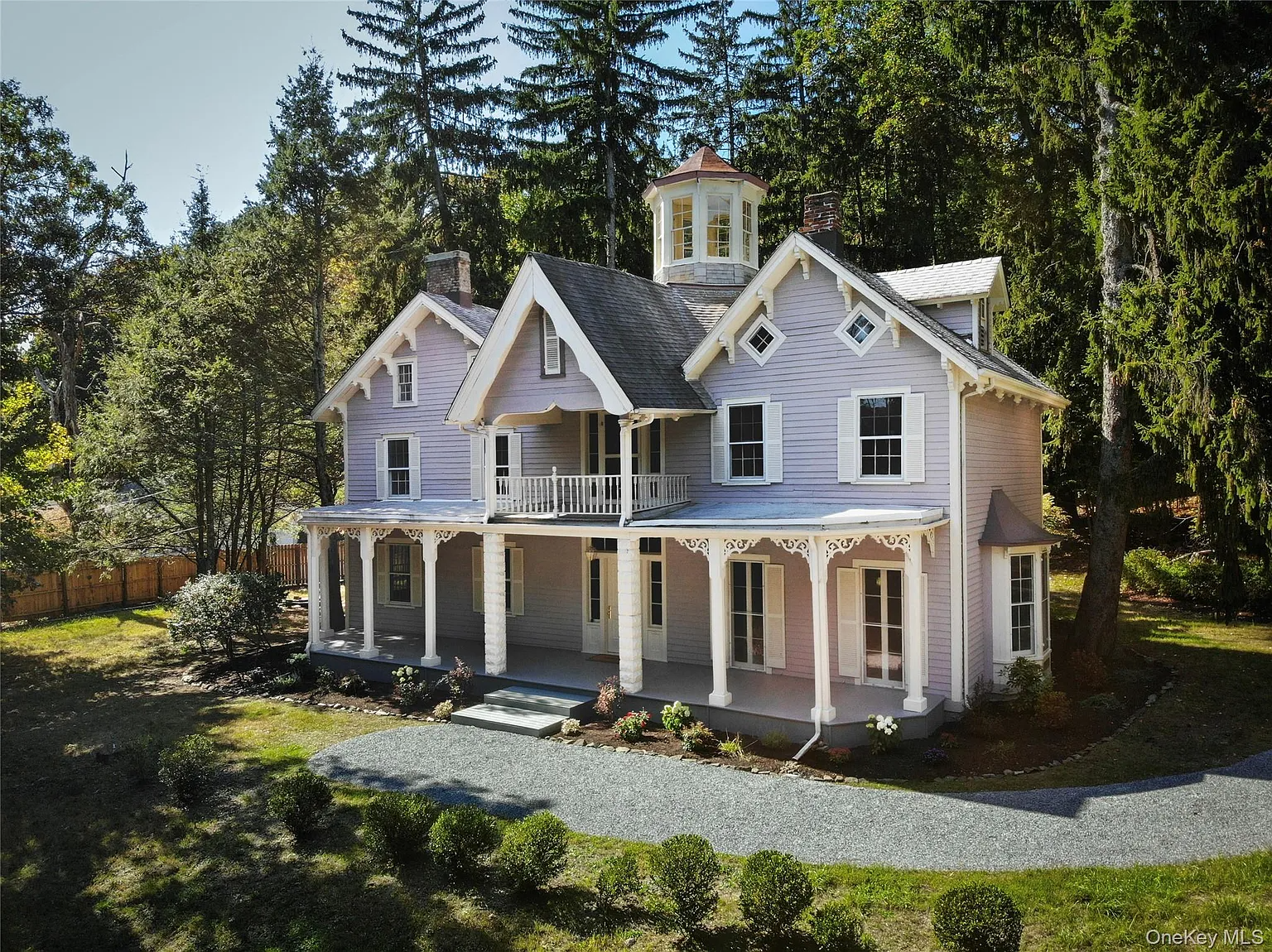The Market Impact of Higher Jumbo Mortgage Rates
The New York Times reported a trend with potentially alarming repurcussions for the townhouse market (and some of the pricier condos coming to market) in Brooklyn: Upward pressure on interest rates for jumbo loans. The article leads with the example of one guy who was quoted 8 percent one day and then three days later,…

 The New York Times reported a trend with potentially alarming repurcussions for the townhouse market (and some of the pricier condos coming to market) in Brooklyn: Upward pressure on interest rates for jumbo loans. The article leads with the example of one guy who was quoted 8 percent one day and then three days later, when he went back to lock in the rate, the number had leapt to 13 percent! This is atypical, to be sure, but the spread between regular mortgages and jumbo mortgages has expanded from about 25 basis points a few weeks ago to about 70 basis points now. (According to Bankrate, most lenders are quoting between 7 and 8 percent for zero-point 30-year jumbo loans.) What’s going on? Regardless of the creditworthiness of the borrower, it appears that the implosion of the subprime market has reduced the market’s appetite for even higher-credit mortgages on amounts above the $417,000 level that Fannie Mae and Freddie Mac are restricted to buying. We’ve got a couple of questions: 1) Are there any readers who’ve tried to get a jumbo loan in the past week or two? 2) If this persists for more than a week or two, what does it mean for the Brooklyn market?
The New York Times reported a trend with potentially alarming repurcussions for the townhouse market (and some of the pricier condos coming to market) in Brooklyn: Upward pressure on interest rates for jumbo loans. The article leads with the example of one guy who was quoted 8 percent one day and then three days later, when he went back to lock in the rate, the number had leapt to 13 percent! This is atypical, to be sure, but the spread between regular mortgages and jumbo mortgages has expanded from about 25 basis points a few weeks ago to about 70 basis points now. (According to Bankrate, most lenders are quoting between 7 and 8 percent for zero-point 30-year jumbo loans.) What’s going on? Regardless of the creditworthiness of the borrower, it appears that the implosion of the subprime market has reduced the market’s appetite for even higher-credit mortgages on amounts above the $417,000 level that Fannie Mae and Freddie Mac are restricted to buying. We’ve got a couple of questions: 1) Are there any readers who’ve tried to get a jumbo loan in the past week or two? 2) If this persists for more than a week or two, what does it mean for the Brooklyn market?
In a Credit Crisis, Large Mortgages Grow Costly [NY Times]





We locked a jumbo at 6.25 with WF in March. We’d be renting this one out if we’d acted much later
Markets are up today, but this is unrelated compared to the overall news which is that the days of easy mortgage lending are over.
You have to show income, no-doc or low-doc loans are all but dead. Way too much toxic waste was sold by people with no vested interest in seeing the loan stand up and this stuff is coming back to remind everyone, each month from now, till well into 2008. (I think it peaks Jan next year, so we are still at the thin end of this wedge).
Personally I think this is gonna knock the consumer economy on the head. There is a deadly spiral across the country of foreclosures leading to fire sales leading to downward valuation leading to more foreclosures and this unwinds over months, not days.
I also think wall street bonus season will be thin this year, we have by no means seen the end of headline grabbing collapses. And the consumer economy which was driven by home equity withdrawals, credit card debt and ignoring risk is going to be knee capped. But gradually, and inexorably. I’m not sure how “hot” new york can be when wall street has a head cold and the country is struggling with flat to negative economic growth.
This thing has only just begun. The fed is fighting spot fires and brush fires only.
10:25 AM guest:
Yea the credit market is shaky right now. Our credit scores are in the 780-810 range, and we still had to scrimp for every rate reduction we could.
We’ll get a 1/4% off on our rate for using direct checking debit, and another 1/4% off for opening up a checking account with Wells Fargo. We also negotiated some on the closing fees, and a few other things, but there really wasn’t much wiggle room.
I really thought that with our stellar credit history and scores we’d be able to get something great in comparison to the market. All our credit scores meant in the end is that we could get a loan without getting raped on the %.
I guess in this kind of market that’s not so bad. 🙂
Well, that’s a benefit then, MGP. And you’re still under 7% (and not so different from 6.5%, really) – imagine you had done it now at 8%, that would have sucked. That conforming loan I mentioned was quoted just last week, and they are people with excellent credit (as were we). It just kind of blows out there, and we’re paying for the excesses of the last few years – we’re likely the last people for a while to get rates under 7%.
10:12 AM guest:
Had we locked in late June/early July we would’ve received 6.625% on our rate. C’est la vie unfortunately.
That said, we bought at One Hanson so we’re not particularly worried about pricing. It also helps that they dropped prices by 9.5% on our condo a few days before we got there.
It was initially valued at that level, so that gives us a nice buffer imo since the price drop occurred before we bought. 🙂
I am in the process of refinancing a 600k mortgage for 15 years(my 5 year ARM is up) and have been quoted a 6.5% rate. The mortgage brokers stated there are less lenders but certain smaller banks are willing to lend to grade A credit risks with income verification and loan to value of 50% or less. These banks are willing to carry these loans. so there are still choices for refinancing.
Following up on the 417 number, 521 may be limit for first-time buyers, but for many people with normal salaries, a 400k mortgage has always been pretty high.
We’re not close to first time buyers and our mortgage is 400k. We just roll equity from one place to the other. Our last co-op was 820k and we had to put down the bulk of that to keep a reasonable carrying cost. With avg maint fees, that’s still $3500-4000 a month.
If you can afford to carry a lot more than that, you can probably swing a 8% (normal by any era’s standards) mortgage.
“We locked in our rate with Wells Fargo several weeks ago for a jumbo loan at 6.875%. Two weeks later, the rate was 8% at Wells Fargo, with several other banks following suit.”
We got 6.5% back in late June (from WF), and locked so when we closed at the end of July, we were lucky. A friend of mine was just quoted 6.8 on a CONFORMING mortgage (though another bank quoted 6.3 – still, high enough).
They are afraid to lend because let’s be honest – we probably all overpaid for our places. Things are just priced too high and many homes will lose value. It sucks, so our plan is to hold for 10 years or more. But it’s what seems to be in the near future.
I think we are going back to what was considered normal conditions until a few years ago.
Twenty percent down, or 10 percent with private mortgage insurance.
Self-amortizing mortgages, mostly fixed rate, with rates between seven percent and eight percent for a 30-year.
A purchase price of no more than 3X income, or perhaps 4X in NYC. No more than 30% of income for housing or, again, perhaps a little higher, like 36% to 40% here, if you don’t have a car and car loan.
Jumbos? The $417K with 20% down means a purchase price of $521K. That will be the upper limit for any first-time buyer. To buy something at a higher price will require a higher downpayment, or other offsetting collateral.
Prices will have to adjust to these conditions.